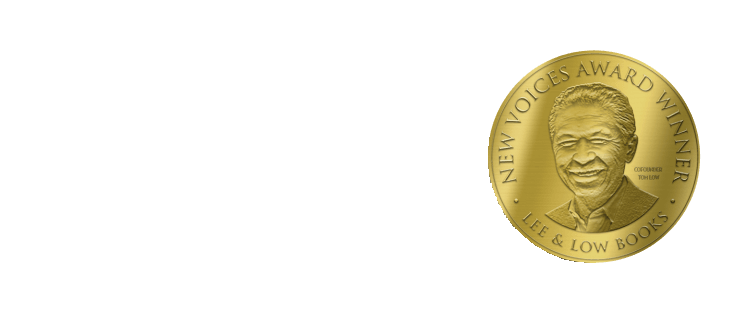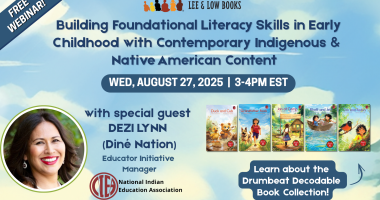
 A few weeks ago, Tu Books Publisher Stacy Whitman and author Joseph Bruchac (Killer of Enemies, Wolf Mark) answered questions about writing, publishing, science fiction and fantasy, and everything in between for a special Reddit Ask Me Anything (AMA) session. We rounded up their best advice for aspiring authors in Part 1. Today in Part 2, we share some of their advice on pitching, querying, and marketing:
A few weeks ago, Tu Books Publisher Stacy Whitman and author Joseph Bruchac (Killer of Enemies, Wolf Mark) answered questions about writing, publishing, science fiction and fantasy, and everything in between for a special Reddit Ask Me Anything (AMA) session. We rounded up their best advice for aspiring authors in Part 1. Today in Part 2, we share some of their advice on pitching, querying, and marketing:
Q: Joseph, when you sit down to write a query letter, what do you think the most important thing is to get across? I’ve heard a lot of advice, from getting the character’s voice in there to making sure the plot ends on a juicy cliffhanger. What do you do that made you so successful?
Joseph Bruchac: Writing a query letter is an art in itself. You need to get across both your idea and that you are the one who is qualified to write it.
I am a strong believer in clarity. Make it clear what your story is about and what your own relationship to it is. And be prepared to elaborate or produce sample pages or a chapter if an editor does express interest.
I do not believe in giving a synopsis of the entire manuscript from beginning to end, More often than not, I have a good idea of what it will be, but I leave space for me to discover more about my character and my story in the process of writing.
Q: What is the best way to go about pitching/querying a series? I know it’s tremendously ambitious to attempt a series as a debut author, and I wondered if you might have any advice to help me increase my chances of getting published.
Stacy Whitman: Remember these words: standalone with series potential.
Generally, most publishers are looking for good series today, but for a debut author, some may not want to initially invest in more than one book. It depends on the publisher and what they’re looking for. But pitching it (if the first book could indeed stand alone) as a standalone with series potential gives options.
Think of it as a standalone episode of a TV series. Can it hold its own without the reader having “seen” the rest of the “show”? The first book of any series (at least, in YA lit–this might be a little different in other categories) should have a solid plot arc that allows it to stand alone, even if no other books were written.
Joseph Bruchac: I might add, that as the author of Killer of Enemies, I have a lot of ideas for a second or third book in a possible series, focusing on my main character and on other aspects of the world in which she exists. But I also have other projects I am working on in the meantime. I would urge any new writer to never put all those proverbial eggs (no matter how big they are) in one basket. And I really like to have a sense of completion whenever I finish reading a novel, even if it is part of a series. Stacy’s analogy of an episode of a strong TV series is a good one. I do not like feeling “strung along” for an hour or 300 pages or whatever without some sort of emotional payoff at the end.
Q: What does “We love this, we just don’t know how to market it” really mean?
Stacy Whitman: Good question! This is a tough one. Every publisher has to limit itself to a certain market that they specialize in. I generally have heard this phrase most from bigger publishers; generally, they don’t see a particular book fitting a broad, commercial market and they’re not sure how to market it to the smaller niches where it might take off.
I’ve heard people say such things about diverse books, for example, or about books that have complicated plots with magic systems or creatures that aren’t well known (werewolves and vampires are more familiar, thus some consider them more marketable to a large audience).
Sometimes we as a small press have an advantage in this regard to a larger publisher, because we know how to find niche bloggers who can really boost a book. For example, Kimberly Pauley’s Cat Girl’s Day Off is about a girl whose superpower is that she can talk to cats. Not only did we approach the normal marketing channels, but we also approached cat-lover blogs to market the book. This may or may not be something that another publisher might do, and that kind of creativity and passion for marketing the book will make a difference for whether a particular book is the right fit for a publisher.
Joseph Bruchac: I’d also like to point out that it might just be that you have not sent your work to the right publisher. Just like people, publishing houses have their own tastes, preferences, and areas of expertise.
As a writer, I’ve had the experience of having a manuscript praised but rejected by more than a few publishers (try 40!) before it was finally accepted and ended up selling a million copies, as happened with the KEEPERS OF THE EARTH series I co-authored with my friend Michael Caduto.
See part 1 with advice on writing, editing, and picking a genre here.
Read the full Q&A on Reddit here.








